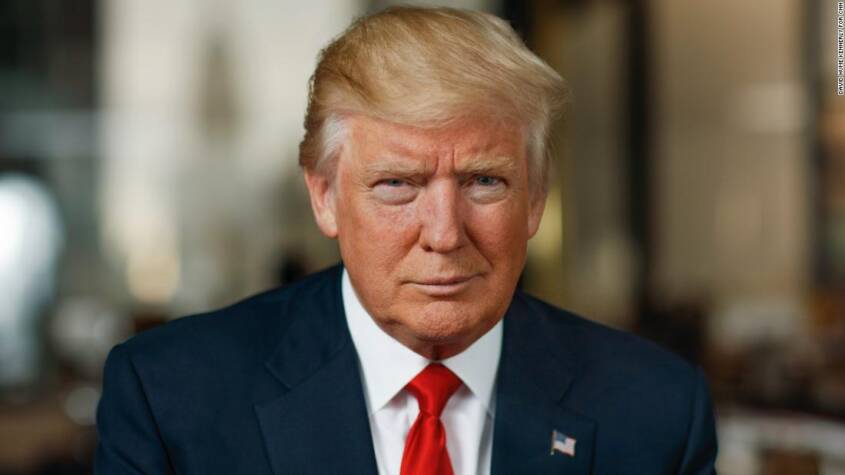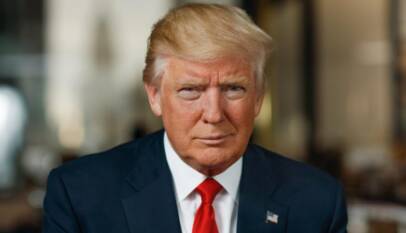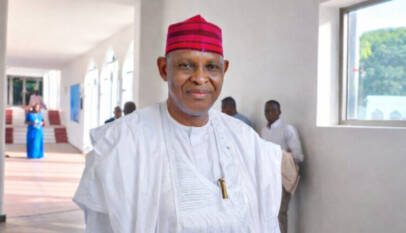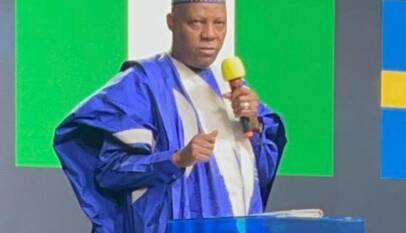Austin Manekator
Donald J. Trump, President-elect of the United States of America
In a stunning turn of events, Donald J. Trump, a former U.S. president and convicted felon, has made history yet again by winning the 2024 presidential election. This election represents an extraordinary moment in American history, not just for its outcome but also for the unprecedented circumstances surrounding it.
Trump’s victory arrives amid ongoing legal controversies and convictions, raising complex questions about democracy, the rule of law, and the resilience of the American political system. For the first time in U.S. history, a candidate with a felony conviction has won the presidency. Trump’s walk on the wrong side of the law, including his conviction on 34 felony counts of falsifying business records in New York, had made him a controversial figure, even within his party.
These charges stem from allegations of hush money payments and business misconduct, marking the first instance of a former president being criminally convicted and subsequently running for, and winning, the highest office again.
Though Trump’s convictions are for non-violent felonies, his unprecedented candidacy has set off debates over the legal and ethical implications of a convicted individual leading, not just any nation, but the U.S. which is touted as the bastion of democracy.
Many Trump supporters argue that this election outcome highlights the strength of American democracy, where voters hold the ultimate authority in deciding who represents them. Others believe it underscores flaws in the system, allowing someone convicted of serious offences to assume the presidency.
The U.S. Constitution outlines only three basic eligibility criteria for the presidency: natural-born citizenship, age (35 or older), and at least 14 years of residency in the United States. No restrictions are placed on candidates with criminal records, as the framers of the Constitution did not foresee this as a potential disqualifier. This legal framework means that Trump’s convictions had no bearing on his eligibility to run, enabling him to campaign and win, even with ongoing legal battles and appeals.
Furthermore, his conviction does not necessarily mean jail time. Under New York law, many first-time offenders convicted of Class E non-violent felonies – like Trump – are typically granted probation instead of prison sentences. Trump’s legal team has also appealed his conviction, delaying any potential sentencing, a move that has allowed him to continue campaigning without the immediate threat of incarceration.
Trump’s election as a convicted felon may influence American politics in several lasting ways. First, it redefines standards for political candidacy, raising questions about the criteria Americans hold for their leaders. Second, Trump’s conviction has only amplified his popularity among his supporters, who view the charges as politically motivated, underscoring public scepticism about the impartiality of the justice system.
Finally, Trump’s conviction and subsequent victory highlight a deeply polarized America, and a president-elect under legal scrutiny could complicate diplomatic efforts, domestic policies, and the overall stability of the executive branch.
Legal experts are now debating the implications of a convicted felon potentially serving as president. For instance, Trump’s conviction could technically limit some aspects of his role, such as his ability to hold security clearances or direct certain agencies. However, as commander-in-chief, Trump would retain broad authority, potentially overriding such restrictions by his presidential powers. This situation may spur new discussions about the Constitution’s capacity to address modern challenges, especially concerning the powers of a president facing legal limitations.
Trump’s election may signal a broader shift not just within the United States but worldwide. The wave of anti-intellectualism, white-supremacist mentality, chauvinism, and even dictatorship that some experts predict could sweep across the globe in the coming months is unprecedented. His electoral success may embolden leaders and political movements that embrace divisive, authoritarian, and populist ideologies.
These movements often promote distrust of established institutions, appeal to nationalist sentiments, and disregard democratic norms – all of which could redefine the political landscape of numerous countries, including in Europe and Africa.
The potential for Trump’s leadership to influence global politics has led to speculation that the United States, once a beacon of democracy, may now inadvertently champion a new era of strongman politics. Leaders around the world who see Trump’s election as a validation of anti-establishment ideals might feel empowered to pursue more extreme measures, which could have lasting consequences on global stability, diplomacy, and democratic principles.
With this win, there will inevitably be efforts to blame Russian interference, Vice President Harris, President Biden, or other players for the election’s outcome. While these accusations may be part of the post-election analysis, it’s critical to be clear-eyed about one key reality: a significant portion of America actively supports the platform Trump campaigned on.
Trump’s base responded strongly to his promises of mass deportation policies, a hardline stance on gender issues, and transphobia, viewing these as a defence of “traditional” values. This platform wasn’t hidden or minimized; rather, it was central to his campaign. The American electorate’s embrace of these issues indicates a widespread appeal to the ideologies that Trump has repeatedly promoted, highlighting deep social and cultural divides within the nation. This election’s outcome, therefore, is not just a reflection of one candidate’s strategy but a broader shift in what parts of America desire from their leadership – and the direction they want their country to take.
As Trump is elected president for a second time, it marks a stunning political comeback for a man who, less than four years ago, was impeached for his role in a violent attack on Congress. This feat makes him only the second president in U.S. history to serve nonconsecutive terms, following Grover Cleveland’s 19th-century return to the White House. However, Trump is the first to be elected after being convicted of a felony, a fact that cements this election as one of the most unprecedented and controversial in American history.
As President-elect Trump prepares for his second term, the nation faces an uncertain path. His unprecedented legal circumstances may lead to new laws or constitutional amendments clarifying the eligibility and limitations of elected officials with criminal records. Until then, the U.S. has entered uncharted territory, with a leader whose election and conviction present both a powerful symbol of democratic resilience and a cautionary tale about the potential vulnerabilities in its political system.
In the months ahead, the world will watch as Trump once again assumes office, defying traditional norms and charting a course that could redefine American governance. His victory as a convicted felon reflects the unique complexity of this moment in U.S. history, where legal controversies, public opinion, and the resilience of the democratic process intersect in ways few could have anticipated.





























